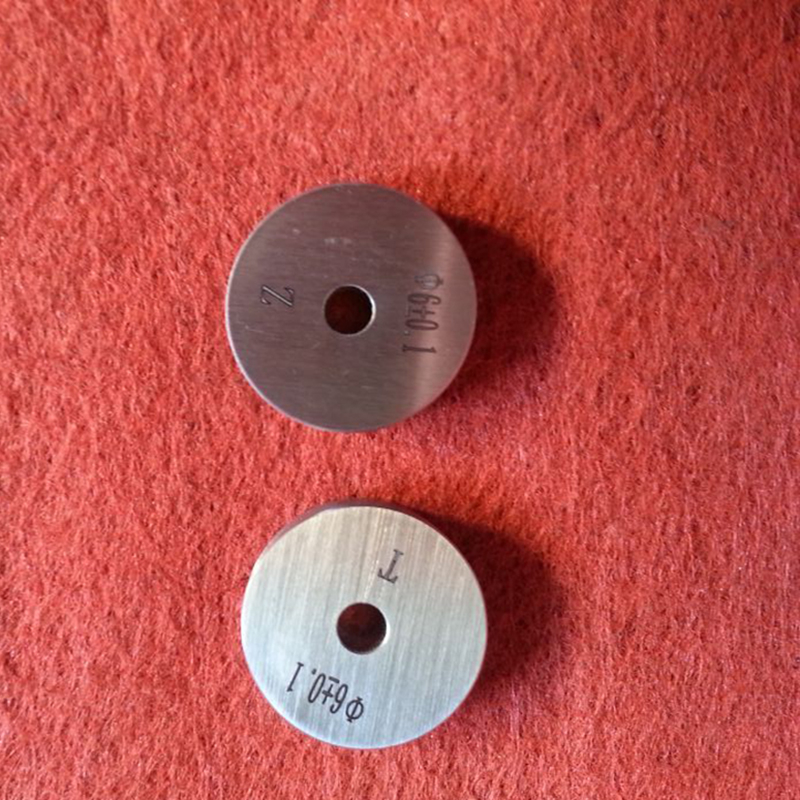Oct . 31, 2024 12:32 Back to list
Understanding Internal Thread Gauges for Precision Measurement and Quality Control
Understanding Internal Thread Gauges Importance and Application
Internal thread gauges are essential tools used in various industries to ensure that threaded components meet specific standards and specifications. These gauges are crucial for the quality control of parts that have internal threads, such as pipes, bolts, nuts, and other fasteners used in mechanical systems. This article aims to explore the significance, types, and applications of internal thread gauges.
What is an Internal Thread Gauge?
An internal thread gauge is a precision instrument designed to measure and inspect the dimensions and functional characteristics of internal threads within holes. These gauges are typically used to ensure that the internal threads are cut to the correct size and pitch, conforming to specific standards such as those established by the American National Standards Institute (ANSI) or the International Organization for Standardization (ISO).
Types of Internal Thread Gauges
There are several types of internal thread gauges, each designed for specific applications and measurements
1. Go/No-Go Gauges This type of gauge consists of two components a Go gauge that should fit into the internal thread, and a No-Go gauge that should not fit. The proper functioning of these gauges ensures that the threads are within tolerance. If the Go gauge does not fit, or if the No-Go gauge fits, the threaded hole is considered out of specification.
2. Thread Plug Gauges These gauges are similar to go/no-go gauges, but they are utilized to check the thread depth and pitch diameter with more precision. This is particularly important in applications with high-stress components where even minor discrepancies can lead to catastrophic failures.
internal thread gauge

3. Thread Pitch Gauges These gauges allow for the measurement of the pitch of the internal threads. By aligning the gauge with the threads, users can identify the thread pitch, which is crucial for ensuring compatibility with mating components.
Importance in Manufacturing
The use of internal thread gauges is vital for maintaining quality control in manufacturing processes. Ensuring proper thread dimensions is crucial for
- Safety and Reliability Incorrectly sized threads can lead to failures in mechanical systems, which may pose safety risks. - Interchangeability Standardized threads ensure that components can fit together seamlessly, reducing the likelihood of production errors. - Cost-Efficiency By catching thread defects early in the manufacturing process, companies can save on costs associated with reworking or replacing defective parts.
Applications
Internal thread gauges are widely used across various industries, including automotive, aerospace, oil and gas, and manufacturing. For instance, in the automotive industry, precision-engineered components require accurate threading to ensure functionality and safety. In the aerospace sector, where weight and reliability are critical, the use of precise internal thread gauges helps maintain the integrity of components under stress.
Conclusion
In summary, internal thread gauges are indispensable tools in quality control, ensuring that internal threads meet required specifications. Their use across multiple industries underscores their importance in enhancing safety, reliability, and efficiency in manufacturing processes. By understanding and utilizing these gauges effectively, manufacturers can significantly improve product quality and performance.
-
Y Type Strainer Maintains System Efficiency Long TermNewsJul.15,2025
-
Valve Selection Guide for Industrial ApplicationsNewsJul.15,2025
-
Steel Fab Table Provides Durable Work Surface for WeldingNewsJul.15,2025
-
Pad Iron Provides Stable Support for Heavy MachineryNewsJul.15,2025
-
One Inch Check Valve Fits Standard Plumbing SystemsNewsJul.15,2025
-
Measuring Micrometer Ensures Precise Dimensional AccuracyNewsJul.15,2025
Related PRODUCTS









